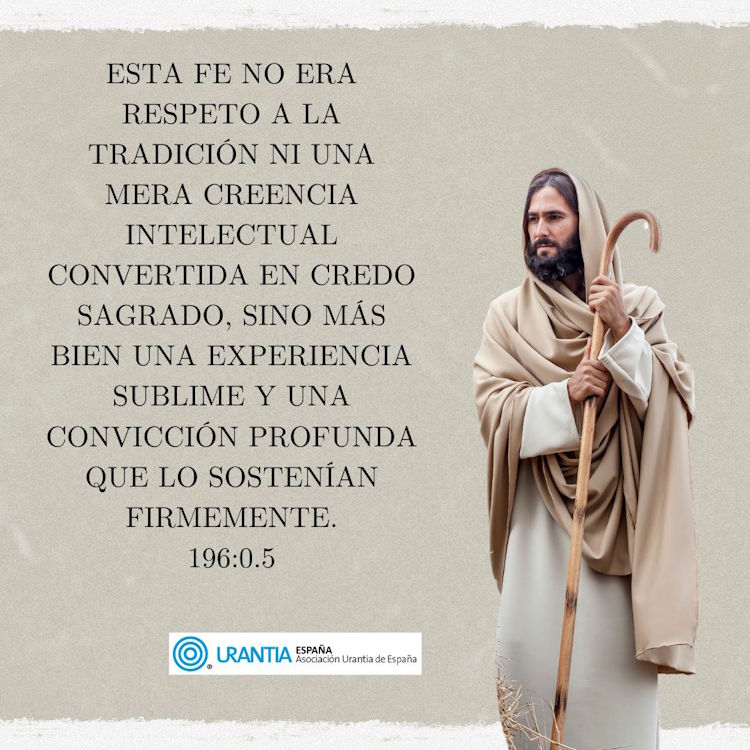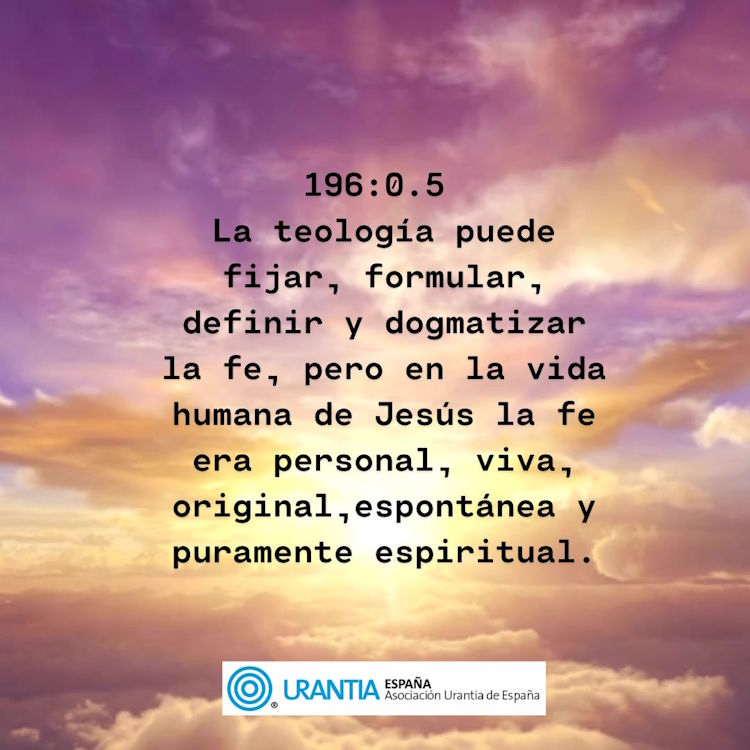© 2025 M. José Sánchez
© 2025 Urantia Association of Spain

First of all: thank you for being here, for taking a few minutes.
In these times of hyperstimulation, screens, instant messaging (with the expectation of an instant response), videos about healthy cookies and kittens… pausing for a moment to read these lines is almost an act of rebellion. So, let’s go for the cause!
I’m asking for a minute. Close your eyes and breathe deeply. Just one minute of your day to dedicate fully to yourself and your breathing. Nothing more. Set a timer, if you like.
Imagine a path beneath your feet, the sound of your footsteps, the spring sun on your face, the sensation of fresh air, a clear mind…
Imagine the feeling of deep connection with a group of friendly Urantia Book readers, the nonjudgmental listening, the laughter in the background, the knowing glances, the first-day nerves, the eagerness to learn, the pleasure of hearing other ideas…
(CLOSE YOUR EYES, FOR REAL, AND IMAGINE IT, please).
It’s beautiful, isn’t it? Being with other Urantia Book readers, opening our hearts and expanding our souls.
From this monthly newsletter of the Urantia Association of Spain, we cordially invite you to the annual Meeting of Readers of THE URANTIA BOOK. We invite you to join these beautiful in-person gatherings that we have held annually for more than 20 years. We invite you to nourish yourselves, to nourish us together.
This year, after seeing the potential and dangers of technological development at the last meeting in Toledo, we want to reflect on the great human potential we can unleash within the current technological paradigm.
Maybe it’s time to return. To return to the center, to the origin, to that part of us that cannot be touched but feels everything. That part that doesn’t die, that doesn’t age, that simply IS.
Spiritual awakening is urgent, but it’s not imposed: it’s invited. It feels like an invisible caress, like a call that doesn’t demand anything, but transforms. It means ceasing to exist and beginning to live.
And in that return, in that moment of contact with the soul, something ignites. A light that doesn’t blind, but reveals. And when that happens, when one looks at oneself from within and finally recognizes oneself, life begins to make sense. Days are no longer just days: they become paths, bridges, awakenings.
Let us scan the horizon of today’s world and transcend the current scientistic, technologically stripped paradigm to turn our gaze inward, to awaken, as Jung said:
He who looks outside, dreams. He who looks inside, awakens. (Carl Gustav Jung)
May I read for a few more minutes?
I’m sharing a quote from a great scientist who reflected on technological advancement and its dangers if moral values are lacking. I hope you’ll once again be encouraged to attend this year’s annual meeting in Zamora and reflect on the human potential that transcends the mirages of technology, AI, and transhumanism.
The Italian philosopher Giorgio Agamben told the following story in one of his works.
Heidegger, a great scientist, stated in an interview with the Spiegel newspaper in 1976:
“Only one God can save us.”
A statement that has always been perplexing. To understand it, it is first necessary to put it in its proper context. Heidegger was speaking of the planetary dominance of technology, which nothing and no one seems capable of governing. Philosophy and other spiritual forces (poetry, religion, the arts, politics) have lost their capacity to stir, or at least guide, the lives of Western peoples. Hence his bitter diagnosis that these disciplines “cannot bring about any immediate change in the current state of the world” and the inevitable consequence that “only a God can save us.”
Needless to say, Heidegger’s diagnosis has not lost its relevance and is even more irrefutable and true today. Humanity has renounced the decisive level of spiritual questions and has created a special sphere in which to confine them: CULTURE. Art, poetry, philosophy, and other spiritual forces, when they have not simply been extinguished and exhausted, are confined to museums and cultural institutions of all kinds, where they survive as entertainment or distractions.
In what sense does “only one God can save us”?
For almost two centuries (since Hegel and Nietzsche declared his death), the West has lost God. But what we have really lost is only a god to whom it is possible to give a very concrete identity, the anthropomorphic god subject to the ups and downs of human history. The death of God is, in reality, the loss of the superficial, the temporal, the cultural shell that we humans give to the divine.
Therefore, now we are left, free of dust and chaff, with the most important thing: the divine. As long as we are able to perceive a flower, a face, a bird, a gesture, or a blade of grass as divine, we can have hope in this world. Rather, we could affirm that “only the divine can save us.”

Our beloved Master, Jesus of Nazareth, was a clear example of a way of living life and religious faith, outside of external restraints and dogmas, united directly to the divine, to the source of everything:
Theology may fix, formulate, define, and dogmatize faith, but in the human life of Jesus faith was personal, living, original, spontaneous, and purely spiritual. This faith was not reverence for tradition nor a mere intellectual belief which he held as a sacred creed, but rather a sublime experience and a profound conviction which securely held him. UB 196:0.5
Do we join in with that affirmation? “Only the divine can save us.”
Only returning, together, to our origins will allow us to revive hope in this world.